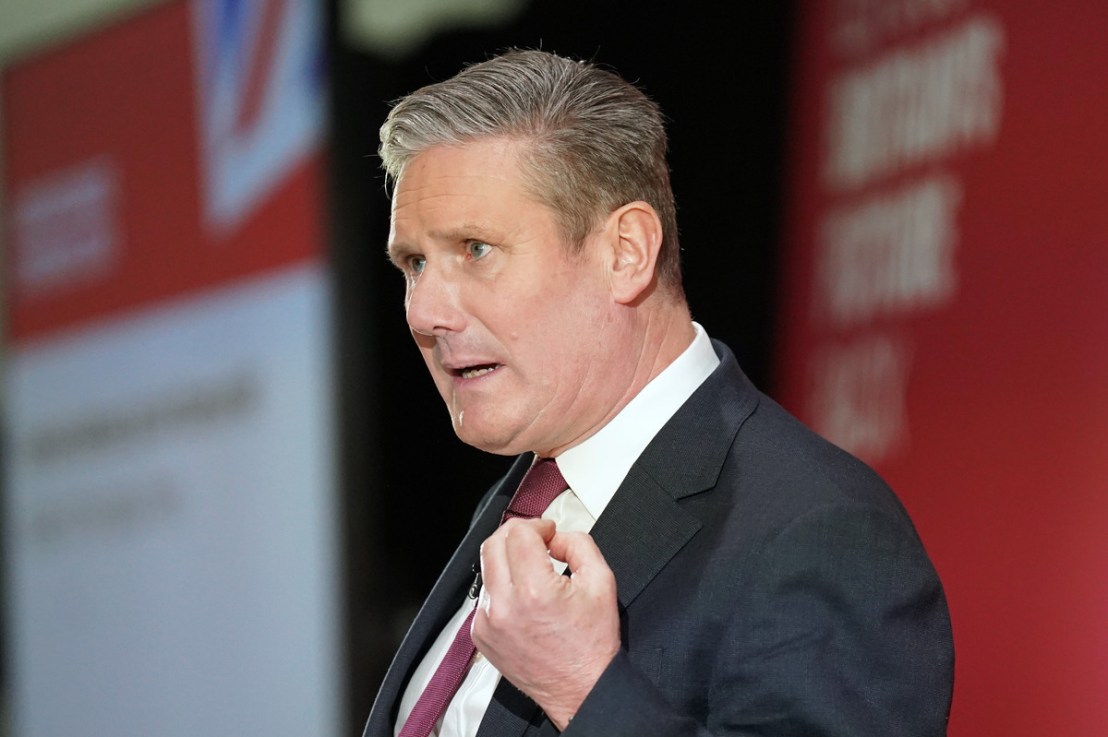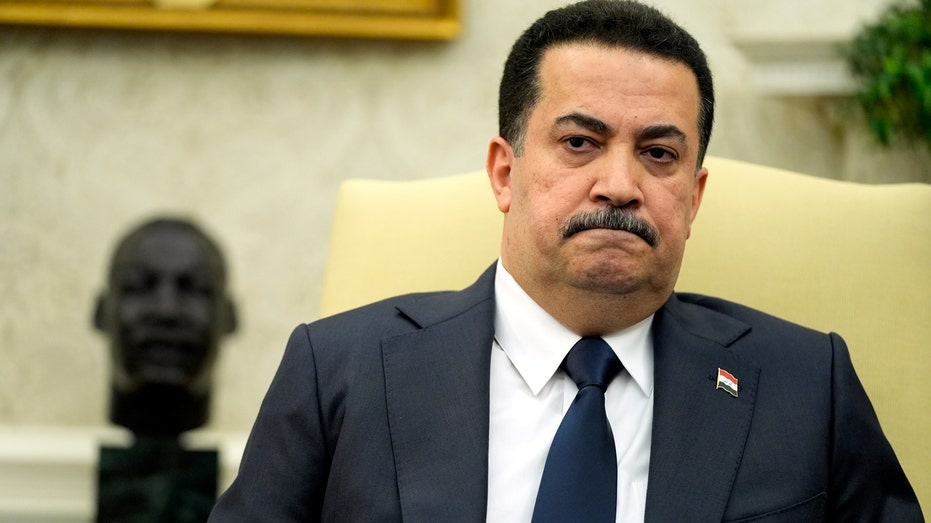Keir Starmer: Nuclear ‘triple-lock’ is ‘bedrock’ of Labour policy with 2.5 per cent of GDP for defence
Keir Starmer committed Labour to spend 2.5 per cent of UK GDP on defence while saying a commitment to nuclear weapons was a 'bedrock' of policy.


Labour leader Keir Starmer has committed to a massive increase in defence spending and said this morning that Britain’s nuclear deterrent is a “bedrock” of his policy.
The prospective prime minister, who is miles ahead in the polls before a General Election, committed Labour to spend 2.5 per cent of UK GDP on defence.
This comes after the UK, US and Australia were set to hold talks on new members joining the AUKUS defence and security pact, according to reports.
This morning, he shored up his commitment to defence spending by saying Labour would continue to back the nuclear deterrent as a “bedrock” of the policy – a far cry from his predecessor who was a long-time anti-nuclear campaigner.
The Labour leader told the I, that defence was “the number one issue for any government” and should his party get into government, it would spend 2.5 per cent of GDP on the defence budget. This matches the government’s aim, but he caveated it saying he would only do it as long as it could be achieved within Labour’s borrowing rules.
“It’s a way of demonstrating that the Labour Party I lead understands that national security, defence of the country is the number one issue for any government”.
This comes amid rising global tensions with a war being waged by Russia in Ukraine, Israel in Gaza and increasing threats from China also; including regarding Taiwan and Hong Kong.
There are also cyber threats linked to Russia and China ahead of major elections in the UK and US.
On Friday, Starmer redoubled his commitment to defence, visiting Barrow-in-Furness, Cumbria, where he announced a nuclear deterring “triple lock”.
Starmer, who is the first of any Labour leader in over 30 years to see Britain’s nuclear submarines being built, will say: “In the face of rising global threats and growing Russian aggression, Labour’s commitment to our UK nuclear deterrent is total.”
His triple lock is linked to the UK’s nuclear submarine programme, committing to building four new nuclear submarines at the site in Barrow, keeping the UK’s at-sea deterrence and all future upgrades, when needed.
Announcing Labour’s new ‘triple-lock’ commitment to the UK’s nuclear submarine programme, Starmer will commit to building four new nuclear submarines at Barrow, to maintaining Britain’s continuous at-sea deterrence, and to all future upgrades needed.
Keir Starmer said: “The changed Labour Party I lead knows that our nation’s defence must always come first. Labour’s commitment to our nuclear deterrent is total.
“In the face of rising global threats and growing Russian aggression, the UK’s nuclear deterrent is the bedrock of Labour’s plan to keep Britain safe. A Labour government would secure a ‘triple-lock’ commitment to our nuclear submarine programme – providing vital protection for the UK and our NATO allies in the years ahead, as well as supporting thousands of high-paying jobs across the UK.”
The Labour Party leader continued: “This is a generational commitment. Countless families in Barrow and across Britain have built a secure future over decades of hard work building our defences. I want that to continue for the decades to come.
“That’s why we are fully backing AUKUS submarines to be built in Barrow, too. And it’s why Labour will ensure that new UK leadership within AUKUS helps make this national endeavour a success for Britain.”
Rishi Sunak is on course to suffer a general election defeat similar to the Conservatives’ 1997 blowout, while Labour would win a landslide, pollsters have found.
More than 1,000 UK jobs linked to Rolls Royce are set to be created following a £2.4bn funding deal as part of AUKUS.
Joining Starmer at the Barrow site, was John Healey, Labour’s shadow defence secretary, who said: “Pride is the overwhelming feeling of defence industry workers, especially those in Barrow building our vital nuclear submarines. They are essential in securing Britain’s defences for the future.”
“A strong defence industrial strategy will be hardwired into Labour’s Mission 1 in Government to drive economic growth across the UK. We will make it fundamental to direct defence investment first to British jobs and British industry,” Healey added.
Labour has come under severe pressure in recent months over its backing for Israel’s military action in the Gaza Strip.
Following the October 7 attacks by Hamas, Starmer was criticised for saying Israel “has the right to do everything it can to get those hostages back safe and sound. Hamas bears responsibility”.
Starmer’s stance has led to high-profile defections from Labour including Guardian columnist and activist Owen Jones.
He made his comments this morning at BAE Systems’ site in Barrow.
BAE Systems is a UK aerospace and weapons manufacturer, which has seen its share price rise 21.53 per cent in the last six months, amid rising global tensions.
Other arms manufacturers and stocks have been boosted by increasing global demand for weapons and parts for military vehicles. Rolls-Royce’s shares are up 92.97 per cent, while Chemring is up 30.02 per cent and Babcock is up 26.66 per cent.
Defence secretary Grant Shapps warned insurance giant Aviva against divesting from defence companies, as being “immoral” amid rising threats. Former City Minister Andrew Griffith previously hit out at UK investors for “defunding” UK defence industries.
He said: “Defence is the opposite of social responsibility when peace and democracy [are] under threat.”



